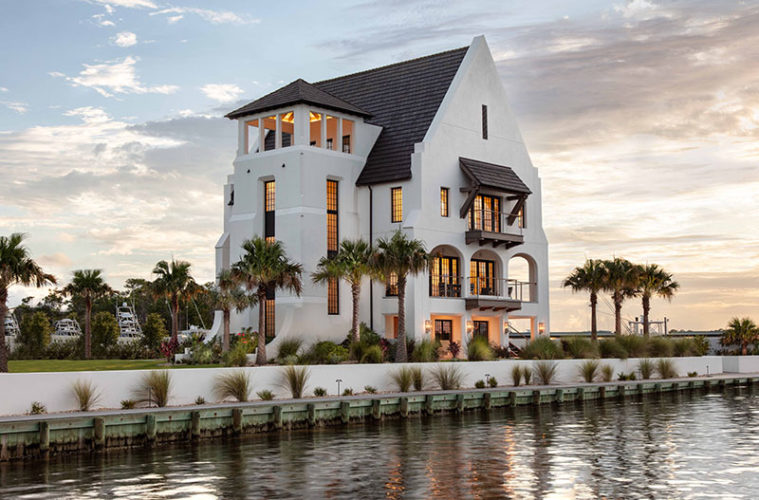Greg Allen is an attorney in Montgomery, Alabama, who bootstrapped himself up from a law school student at night to a major player in the South’s legal profession.
“I grew up in Georgia and moved to Alabama in 1976—in a 1960 pickup truck with a bed and a chair,” he says. “Now I’m a principal in a law firm with 100 lawyers in Atlanta, Montgomery, and Mobile.”
Along the way, he picked up a serious hobby—in, around, and under the water. “I started scuba diving 35 years ago,” he says. “I’ve been all over the Caribbean and the Gulf of Mexico.”
Spearfishing is his sport of choice, and he’s staked out Orange Beach, Alabama, as his headquarters. For years, he viewed the Gulf from his unit in the Porto del Sol condominiums. Then a one-and-a-half-acre lot next door came up for sale. “The economy went south, and I was able to buy it,” he says.
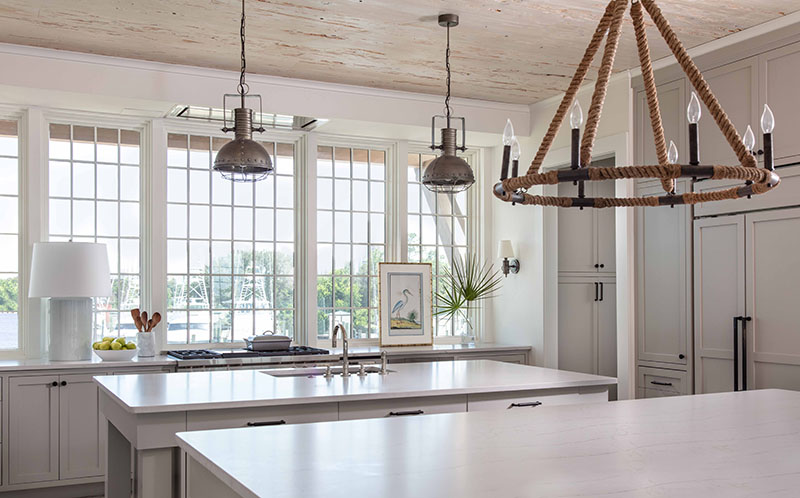

He’d been involved in renovations for downtown Montgomery, so he knew Phillip Pouncey, whom he calls “as good a builder as I’ve ever met.” When asked for a good architect, Pouncey steered Allen toward Birmingham-based Chris Reebals, president of Christopher Architects & Interiors.
Reebals has a rarified pedigree all his own. A 1992 graduate of Auburn University, he was in Samuel Mockbee’s first class, where the Rural Studio was born. It’s now a world-renowned, off-campus design/build program that’s created more than 200 community projects in and around Hale County—and educated 1,200 hands-on architecture students in the process “I was in the thesis class,” Reebals says.
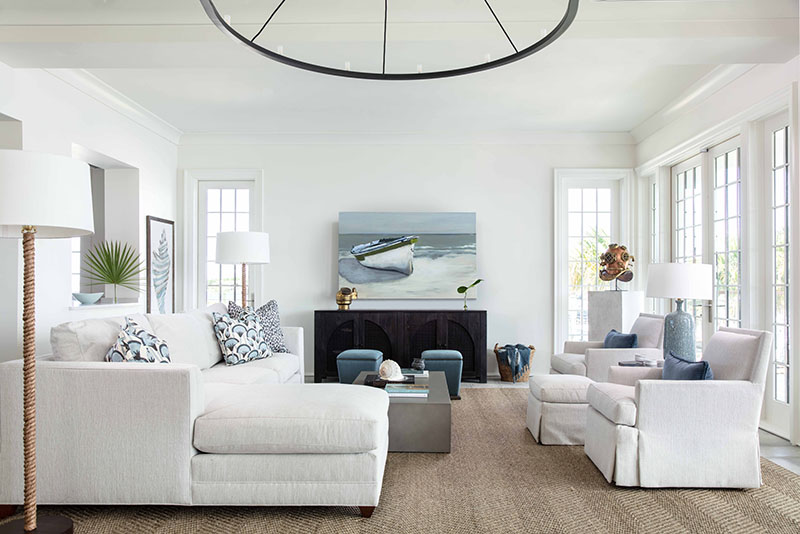

Dialog with stakeholders is key to the Rural Studio’s success, and getting to know clients personally is a big part of Reebals’s ethos. In Greg Allen’s case, that meant not just his passion for boating, diving, and spearfishing—but for his wife, children, and grandchildren too. “Family was massive,” Reebals says. “We wanted to create a place, a refuge to enjoy with the family, and a legacy to pass on to them one day.”
Allen and his wife are big fans of Bermuda architecture. So Reebals set out to create something with clean lines, open spaces, and natural light. “It resonates with the soul,” he says.
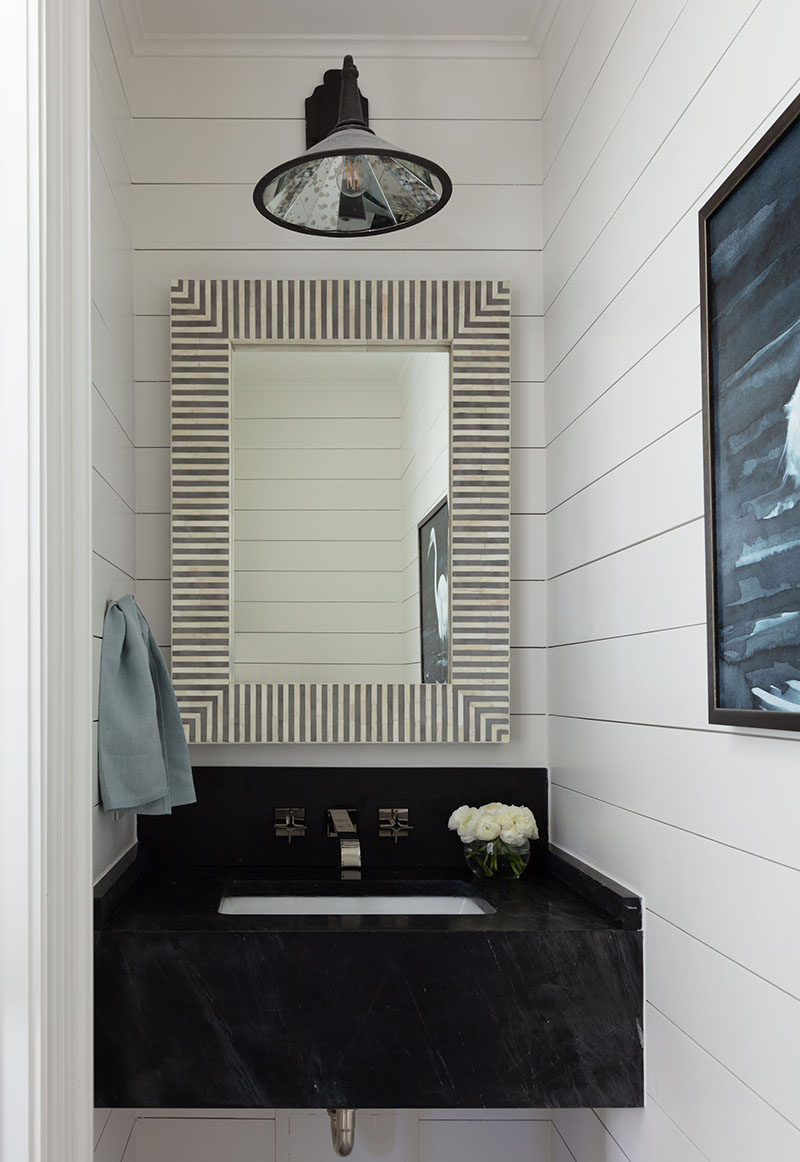

Alas, Allen declined his first design. The attorney wanted to build up, not out, because of the potential for hurricane surge. But the next design Reebals delivered was an out-of-the-park homer—a three-story tower with garage and storage on the lower level, living areas on the second level, and bedrooms, office, and 360-degree views atop it all.
It’s solid as a rock. Reebals’s material of choice was concrete, two feet thick in some places, along with a coat of plaster. Concrete pilings reach down 60 feet below grade, and the roof is clad in sturdy terracotta tile from Ludowici. “They haven’t made a hurricane that can penetrate it yet,” Allen says. “The builder said: ‘I hope it doesn’t go out of style, because you’ll never be able to move it or take it down.’”


Inside, interior designer Joanna Goodman, also an Auburn grad, designed the home for durability, ease of maintenance, and beauty. Kitchen surfaces are quartz, custom cabinets are sophisticated but rustic, and there are touches of perky cypress and pops of wallpaper. “It’s all low maintenance, with performance fabrics for wet bathing suits—it’s all cleanable,” she says.
Her color palette takes its cues from the blues and whites outside on the horizon. And she worked in a nostalgic marine theme as well. “There’s an old diving helmet on a concrete pedestal, and nautical items are displayed as part of the décor,” she says.
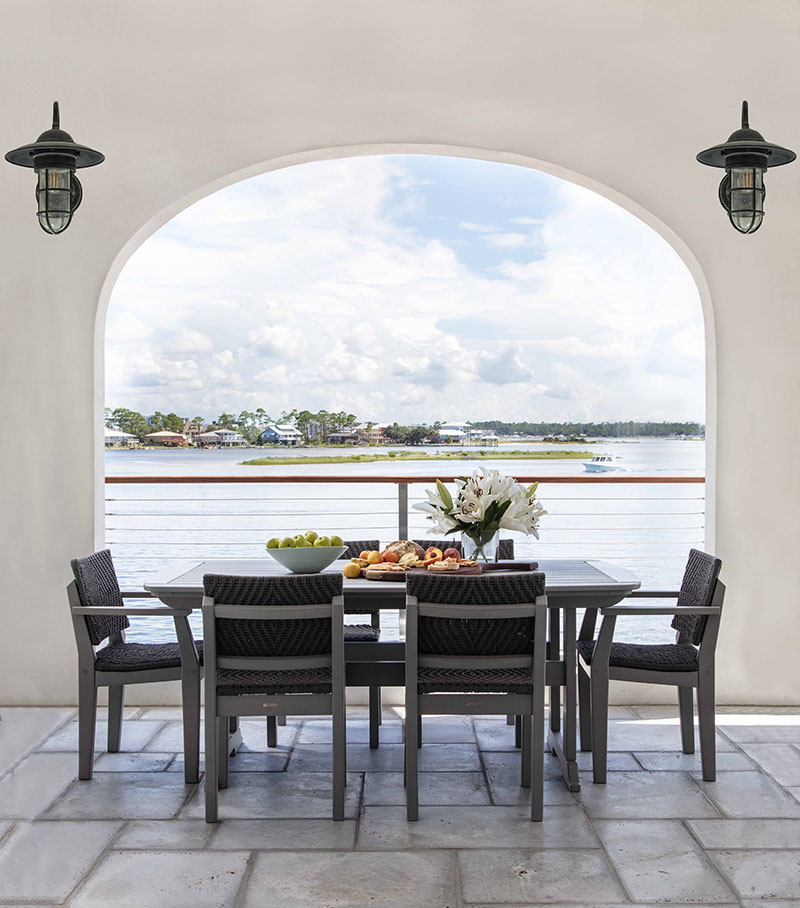

Allen asked his architect to design a house for diving—with an electric cart, a covered dock for diving gear, and a tower—and he got it all. Under the dock cover is an outdoor shower, a fish-cleaning station, and a system for cleaning diving gear with solvent.
Now he can get out to the Gulf in no time flat. “It’s designed so I can back a cart up to the boat and load it up,” Allen says.
As for his kids and grandkids, they’ve always got the clay tennis court—and the volleyball court, too.
For more information, visit christopherai.com


